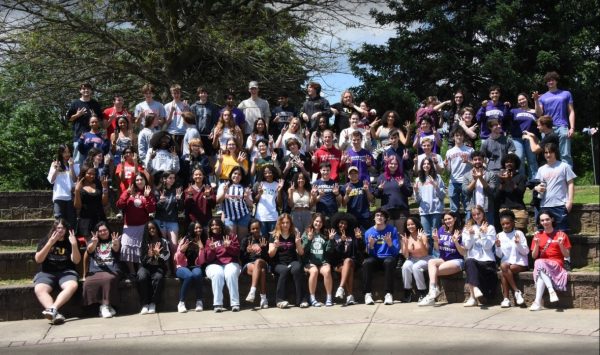Communication 101: Does YELLING do the trick?
“People are hard to hate close up. Move in. When you are really struggling with someone, and it’s someone you’re supposed to hate because of ideology or belief, move in. Get curious. Get closer. Ask questions. Try to connect. Remind yourself of that spiritual belief of inextricable connection: How am I connected to you in a way that is bigger and more primal than our politics?”
–Brené Brown, author, TED Talker, and research professor at the University of Houston.
Following the 2016 presidential election, the political climate of the US has become increasingly polarized by the tweet. Inherently, said polarization still has an effect on our community as all of us are influenced by the world at large. While each of us belongs to the SSFS community, our influences also come from our families, places of worship, friend groups, and other external factors. In other words, while the general culture of our school is progressive and left-leaning, not everyone may have the same political viewpoints on every issue. What some may view as a blatant show of discrimination, others may see as someone simply exercising their rights as a US citizen, regardless of intention.
Under a Trump presidency, the term “conservative” has become less of a way to describe the management of our government affairs and economy and has instead become almost synonymous with racism, xenophobia, homophobia and all-around bigotry. In a sense, Donald Trump has fundamentally altered what it means to be perceived as a conservative in America.
To further complicate matters, the conservative media is also seen conveying similar attitudes of disrespect and prejudiced behavior, a clear example being Senator Lindsey Graham’s 2018 statement that it would be “like, terrible,” if he was determined part Iranian in his DNA test.
In a time where both those in power and those in the media are dividing the population more and more, it is important that we as a community acknowledge our responsibility to support one another, tear down these barriers, and search for the middle ground. Ultimately, it is impossible to like everyone that we meet, and even more impossible to agree with everything that they say. However, it takes very little effort to simply sit and listen. After all, as Helen Keller famously stated, “The highest result of education is tolerance.”
Although the SSFS community may not be as polarized as the rest of the country, we are not as free of bias or hostility as we may believe. From subtle jabs from students toward one of our faculty members for their military service, to students having five-against-one arguments on politics, we have to evaluate ourselves as a collective and make sure that we don’t stray from our core principles, i.e. the SPICES. The SPICES, especially Community, form the backbone of what SSFS stands for; and to make our fellow Friends feel unwelcome among their peers is counterproductive to our school’s goal. As one SSFS senior put it, “Are we willing to extend the SPICES to everyone? Even those who don’t agree with us?”
We’re all teenagers here. So, as we grow and form our own political opinions and become our true selves, we are naturally prone to disagree among one another. Likewise, checking other individuals’ privilege and combating discrimination is equally acceptable and even encouraged. However, where do we draw the line and say, “enough is enough?” Is it appropriate to have a classroom majority come down on the black sheep who disagrees with universal healthcare? Is it alright to smother the student with Trump-supporting parents in a barrage of disapproval and harsh words? At the end of the day, we are all determining our own philosophies and ideologies, and while having a healthy debate about which is the best is normal, cruelty and the cold-shoulder aren’t the way to go.
In my experience, it is both more appropriate and more effective to simply hear out the other side and form our conclusions once all evidence has been laid out. Sometimes, the best arguments aren’t arguments at all. Instead, conversation, personal experience, and deeply thoughtful discourse often generate the best paths for results. Even then, one can never expect to change another person’s mind and sometimes the best thing to do is walk away.
As a young, middle-class, black male, I have come to learn that aggressive action seldom leads you to where you want to go. As my people are generally seen or displayed as threatening, rowdy, and uneducated (to name a few stereotypes), we always have to step carefully. Whether debating on the news against Fox and Friends representatives or rioting in the streets, the slightest misstep is what breaks the news. Rather than focusing on what caused us to act “irrationally,” or “out of character,” in the first place, only the negatives are highlighted.
The same can be said of heated conversation in the classroom or even the workplace in general. Anger, clear hostility, or even the slightest shift in voice tone is enough to make the others say, “See, this is how they act!” Making an opposing side feel attacked may not only cause them to shut down, but it can also invalidate the point that you are trying to make by causing them to focus on your argument delivery rather than the message itself.
While I do not encourage the student body to lose its conviction or weaken its stance(s) on key issues, I do implore us all to work to find our centers and treat others with respect, even when we feel that we are being disrespected ourselves. While a middle ground may not always be tangible, it is still important to deliver your arguments in a manner that others will be receptive towards; otherwise, you’re preaching to the choir.
It is also important to keep in mind that many arguments are not just issues of morality, but perspective as well. I have often learned time and time again that you cannot relay an experience (specifically one that is exclusive to you) to someone else and expect them to understand. Eventually, it may become necessary that one faces the simple fact that the other party’s mind cannot be changed, and that ultimately, all you can simply do is hope that they see where you are coming from over time. In a situation where this happens, just walk away. There is no reason to become angry or raise your voice. Simply let others present finish their thoughts and leave before things spiral.
Over the four years that I have been an SSFS student, I have come to appreciate just how diverse our community is. Whether mingling in the Beestro during break, or taking part in an all-school assembly, one can see the beauty in the different faces that define our community. On dorm alone, we have a residency representing at least a dozen different nationalities. Even in the classroom, whether discussing the fundamentals of Universal Healthcare or studying the history of Islam, our school strives to make diversity and individuality a number one priority. However, diversity is more than just what we learn on paper, and it is certainly more than skin-deep. While our Quaker ideology generally creates a strong culture of open-mindedness and leftism, we still struggle from time to time to make all voices heard, especially those we may disagree with.
Ultimately, we need to ask ourselves: Are we willing to let every voice be heard, even if they’re saying what we don’t want to hear?











